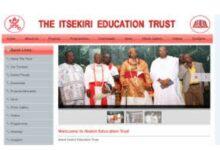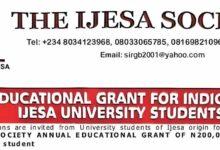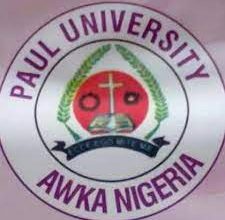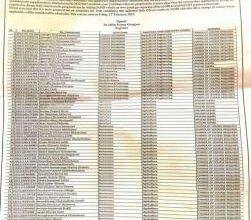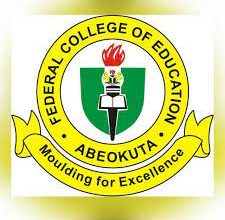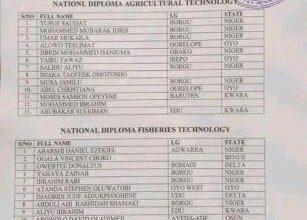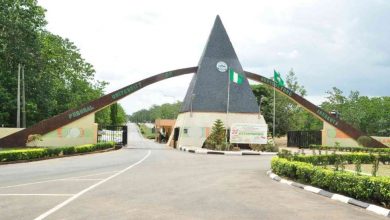Problem and Prospect of Computer Education in Nigeria
Problem and Prospect of Computer Education in Nigeria
INTRODUCTION
👉 Relocate to Canada Today!
Live, Study and Work in Canada. No Payment is Required! Hurry Now click here to Apply >> Immigrate to CanadaNATURE OF COMPUTER EDUCATION
Computer Education involve the capability to effectively use computers and related technology from its elementary use, programming and advanced problem solving skill. Computer education can also refer to the proficiency of using computer program and its applications .
This means understanding how computers work and operate. Computer programing is design and coding of computer programs rather than familiarity and skill in their use. Proficiency. It also includes advanced computer usage such as software engineers, and software developers/programmers etc.
Roger W. Haigh defines computer education as the combination of knowledge and skill which people need to have about computers in order to function effectively at work and in their private lives in this century. According to Sherman(2005) computer education provides the capability to solve teaching and learning problems rapidly and accurately than before.. The Computer is an effective device for presenting educational instructional programe. According to McCormick(1993), computers can be used to diversify, develop and improve the teaching and learning.
Also, technological development can only be enhanced among other things through Computer Education.This was the reason why the Federal Government of Nigeria launched the National Policy on Computer Literacy at primary, secondary and tertiary levels of education in 1987 .
The objective included: To equip the individual or student with thorough understanding of the concept of computer to function properly in this technology century. Computer Education was perceived as a new instructional system that was designed to improve the quality of teaching and learning.
To develop a computer literate society in Nigeria
.To facilitate the use of computer as teaching and learning tool in all subject areas and to aquiant students with knowledge of computer technology.
👉 Relocate to Canada Today!
Live, Study and Work in Canada. No Payment is Required! Hurry Now click here to Apply >> Immigrate to CanadaTo assist students appreciate the potentials of the computer and its application in various aspects of life and occupation;
To acquaint the teachers and students with the modern scientific knowledge and skills.
CONCEPTUALIZING COMPUTER
Reith (1993) states that the computer is an electronic device which stores , on disc or magnetic tape; analyses and produces information from the data stored on the disc or magnetic tape. Kingsley (1995) views computer as a device that accepts data ,processes it to produce the require information..
Adekomi (2001) defines computer as a device which provides solutions to problems by accepting data, performing described instructions on the data, and supplying the results of these instructions. Therefore, computer is an electronic component that process information speedily to produce results to meet the need of the user.
Computers, consist of five basic parts . This are namely, Input Unit, Memory Units, Control
Units (CU), Arithmetic and Logic Units (ALU) and Output Units. The ALU and CU are joined together into one piece of hardware known as the Central Processing Unit (CPU) which is referred to as the brain of the computer. Adekomi (2001), states that the primary functions of computers are: Imputing and storing information, Processing information, Out putting information.
Computer are made to accepts data from its input devices such as the screen, mouse, light pen, scanner, microphone, joystick etc. .This data are processed and stored, and then gives the processed information as output through the output devices which include the following printer, loud speaker, computer output, microfilm and others.
The basic different types of computer are the analog, the digital and the hybrid. The function of the analog computers includes their uses for measuring changes in continuous physical or electrical states. Such as speed, pressure, voltage, length, volume and temperature.
Digital computers are used for performing calculation by counting number accurately while data are depicted by discrete states of the computer electronic circuitry. Digital computers can convert data to binary form. The hybrid computers depicts a combination of digital and analog computers and are popularly known to have found much application in control and feedback processes.
PROBLEM.
- Problem of Poor implementation and management strategy: This impedes the success of computer education in UBE towards achieving its objectives
2 Problem of inadequate computer Laboratory. This has to do with the problem encountered in the process of setting-up and managing computer science laboratory in Educational institutions .
3 Problem of Inadequate qualified computer science teachers: The situation reveals that many schools do not have qualified computer science Teachers to impart computer education
4 Problem of lack and insufficient supply of electricity: many schools are suffering from acute power shortage and supply.
5 Problem of cost of acquisition of Computers. Considering the low and dwindling level of the country’s GDP , many of the individuals and educational institution cannot afford to purchase a computer and consider it as a luxury item, which is more expensive than a TV. Also the 2nd hand computer systems cost as little as $150 and the branded new computers being sold at $500
6 Problem of Lack of motivation: The problem of poor remunerations and incentives to computer science teachers greatly impedes on the development of computer education.
7 Problem of Lack of computer library in educational institution. Many schools do not have computer Library to facilitate access to reading materials.
8 Problem of Inadequate furniture’s in educational institutions. The acute shortage of sitting and writing furniture impedes on the development of computer education in schools
9 Problem of Lack of internet or slow connectivity; many educational institution are not able to connect to the world wide web, as a result of the increasing costs involved in the process of connectivity. Some times on the average, it seems to cost approximately $120 per month to connect to about 15 computers on a bandwidth of 128/64kbps. This scenario is considered to be as very expensive for a very slow speed world wide web.
PROSPECT
- Computer education introduced in the UBE curriculum is step towards the development of computer education in Nigeria..
- The increasing prevalence of career and job opportunities in computer related fields is a great motivation for the development of computer education in Nigeria
such as word/data processing operators, system analyst, programmers, website designers, and engineers etc.
- The growing concern and participation of the government in the development of information and communication technology in a great motivation and contribution towards the development of computer education in Nigeria.
- The increasing rate of student enrolment in computer education in educational institution and training centers is a great trend towards the development of computer education in Nigeria. .
5.The growth in participation of Private individuals and organization in providing computer training centers and education is a booster to the development of computer education in nigeria
